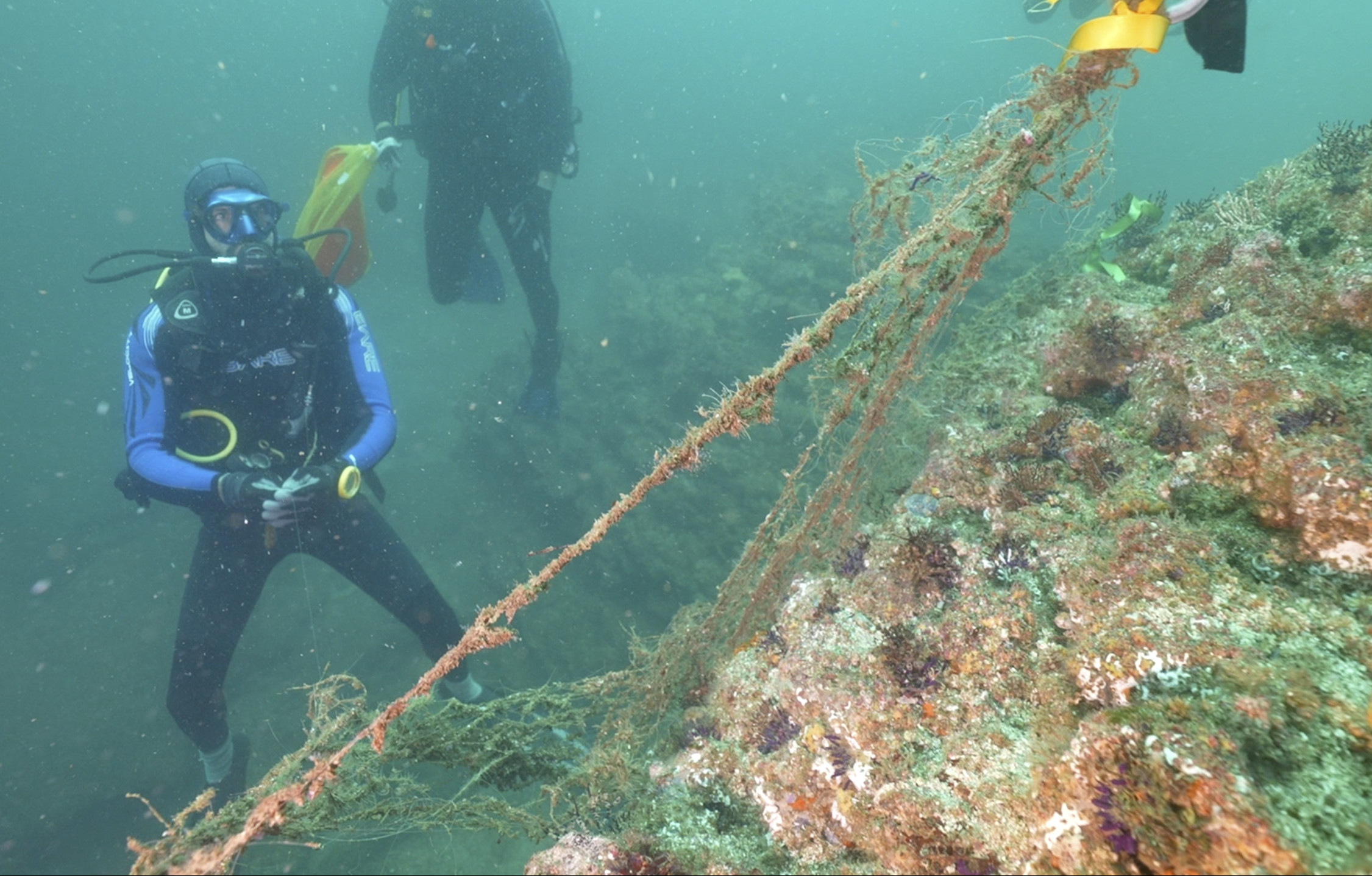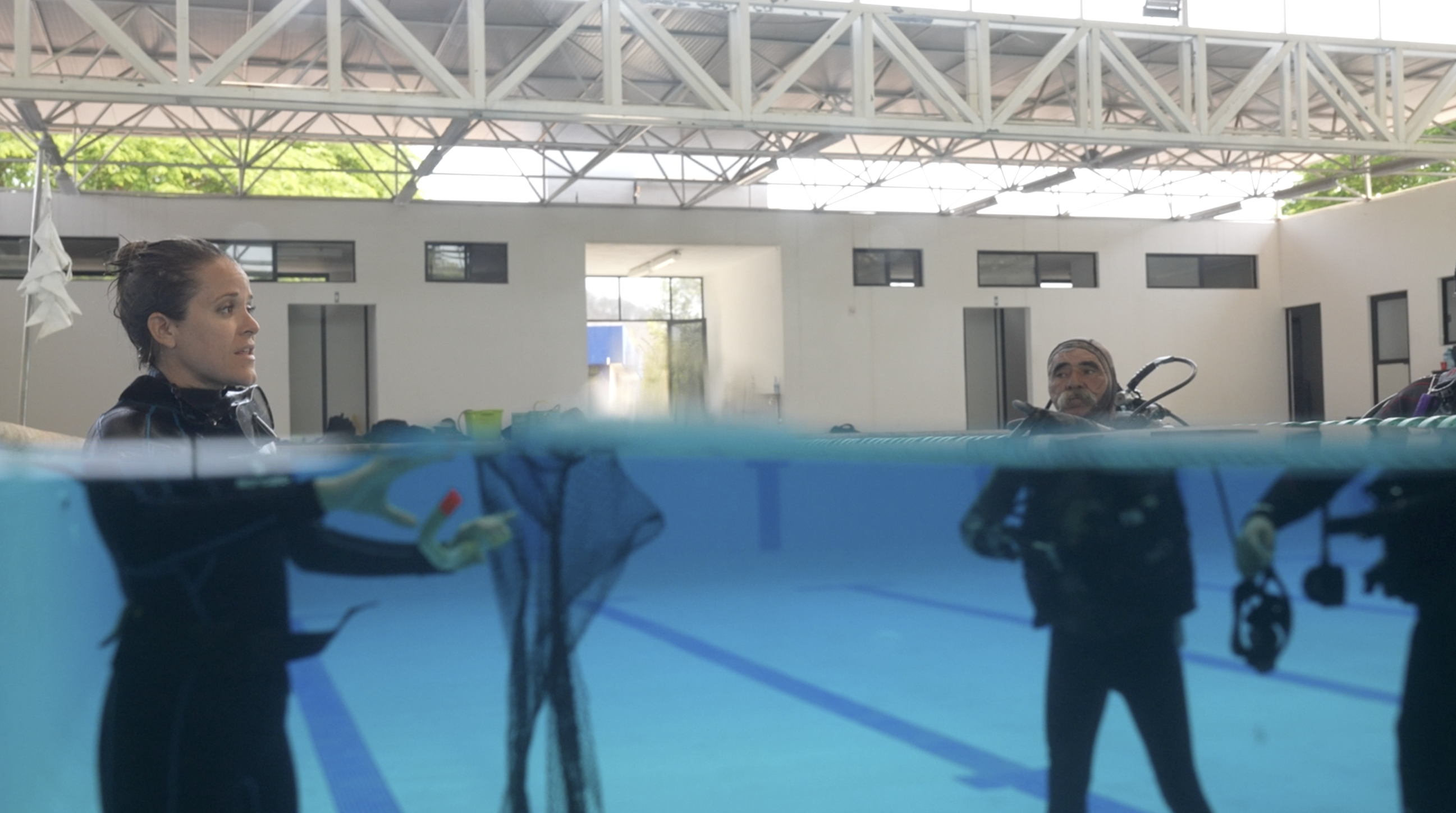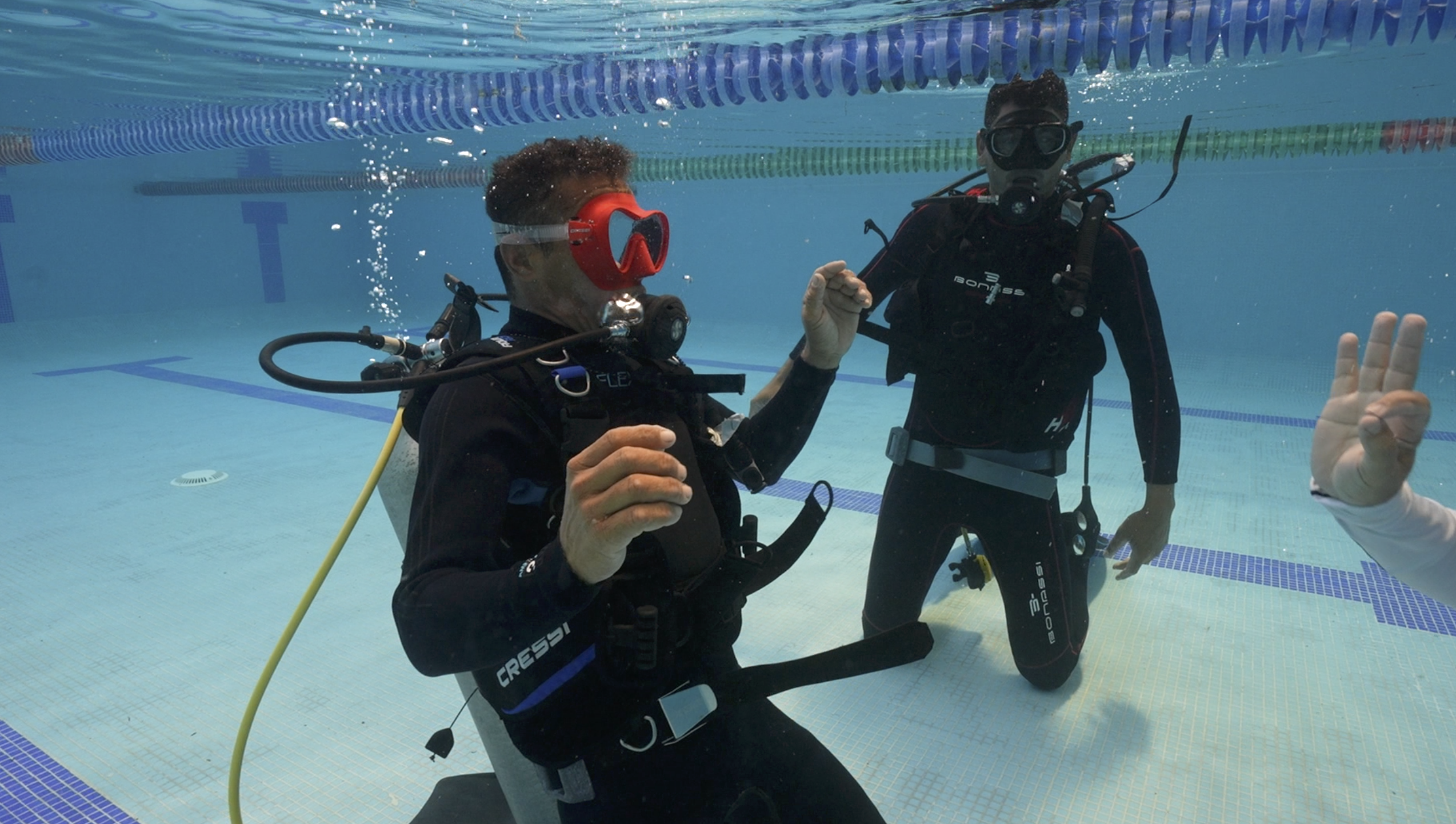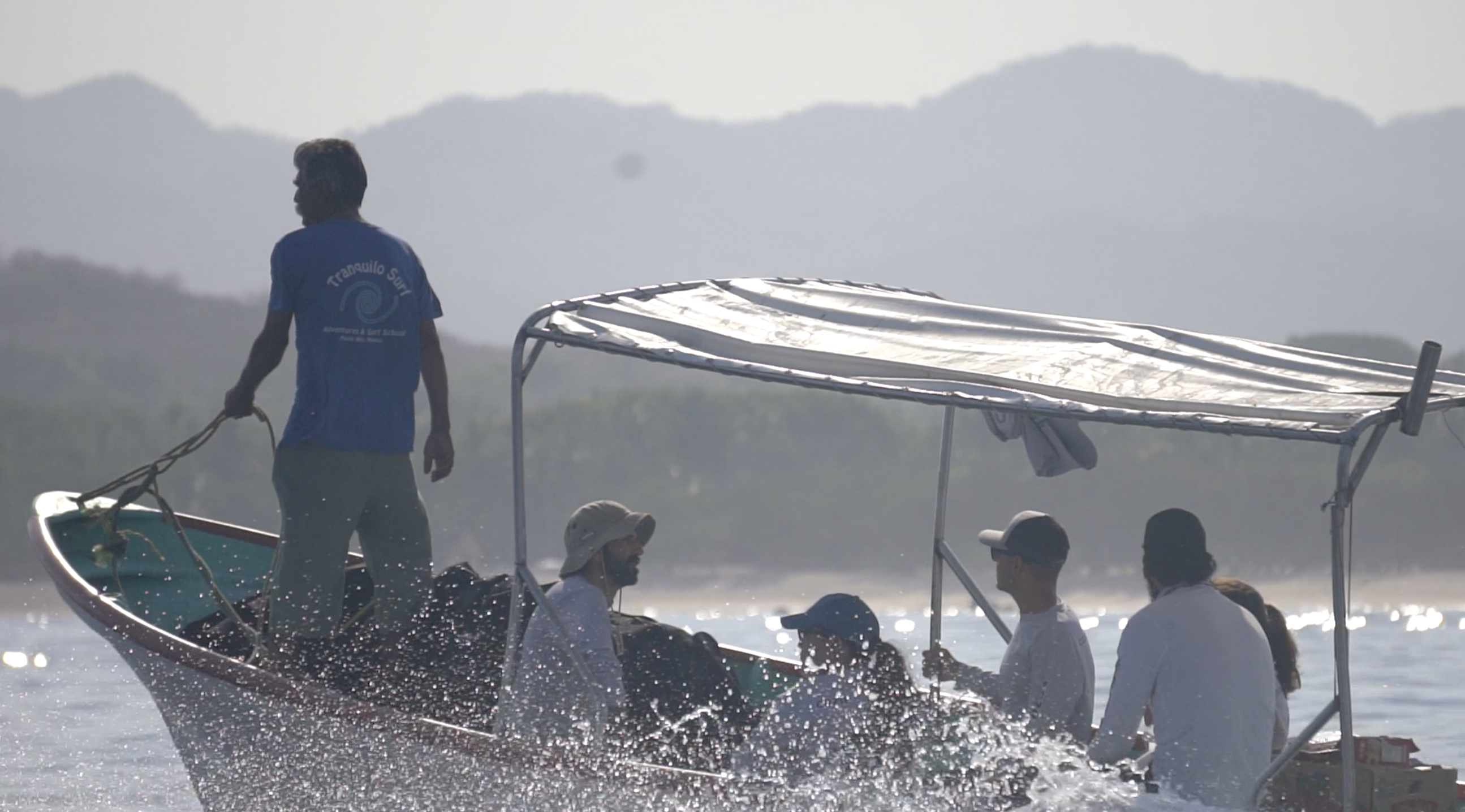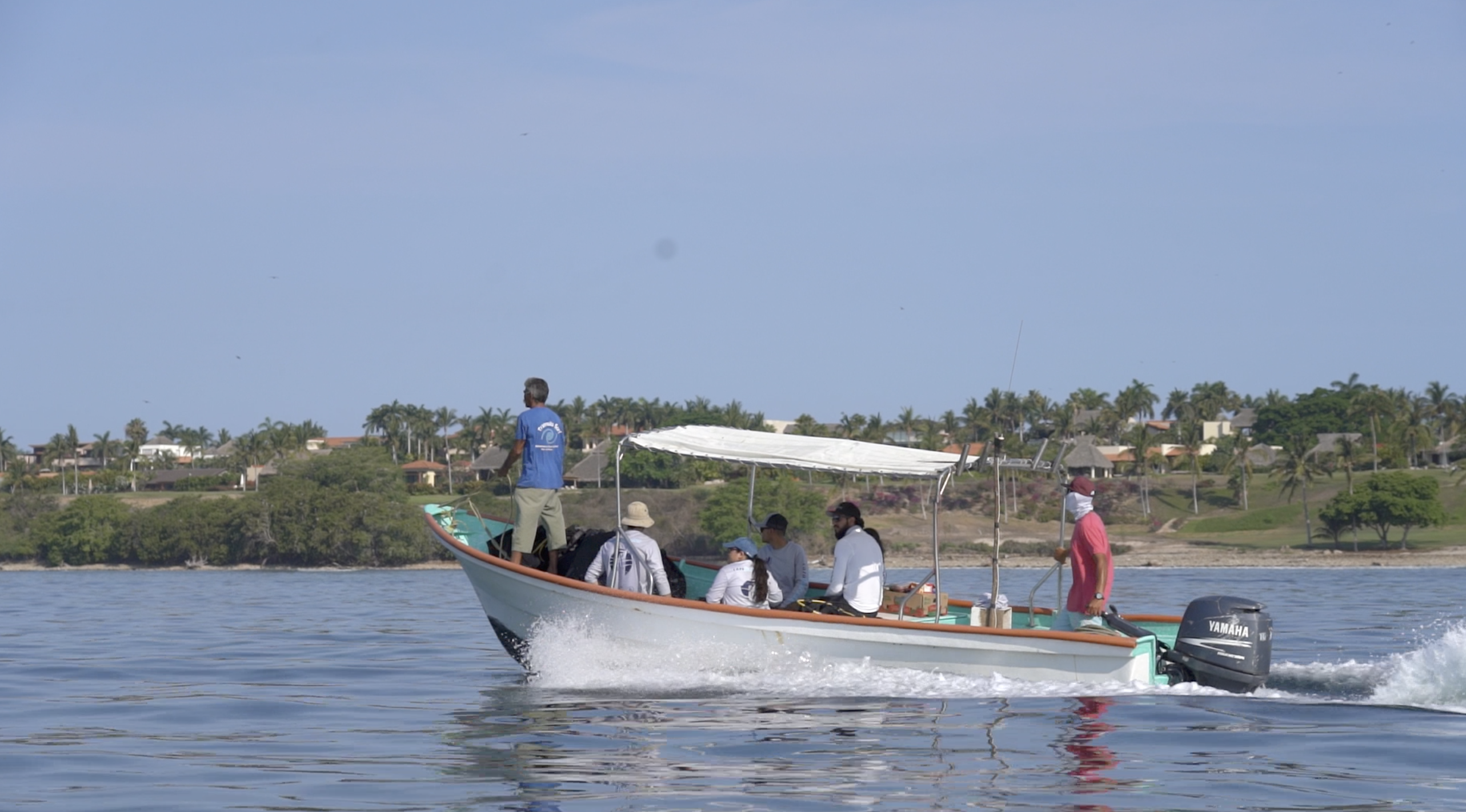Abandoned, Lost and Discarded Fishing Gear
To strengthen ocean health, Mexico is implementing concrete initiatives within its national waters, such as committing to the Global Ghost Gear Initiative (GGGI) in November 2020.
Since then, the government, with the support of the GGGI and strategic multi-sectoral allies, has been working to create a predictive model of key sites where ghost fishing gear would most likely be located as well as developing a National Strategy for the Comprehensive Management of Ghost Gear through the Inter-ministerial Commission for the Sustainable Management of Seas and Coasts (Comisión Intersecretarial para el Manejo Sustentable de Mares y Costas; CIMARES).
A pilot project to recover ghost gear was developed, led by WWF Mexico along with NGOs, academia, federal and local authorities and local fishers in Punta Mita, Nayarit.
Finally, roundtables, virtual multi-sectoral discussions and workshops have been held on best management practices for fishing gear, both at the national and regional levels.
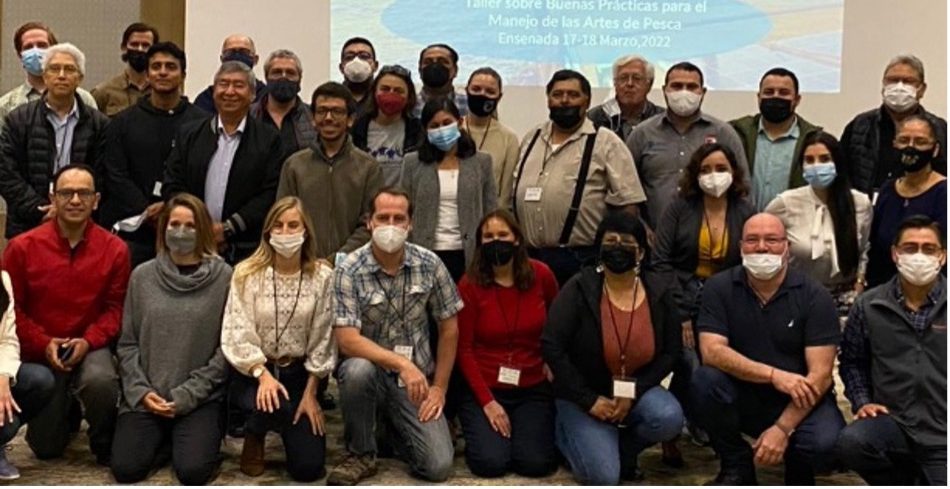
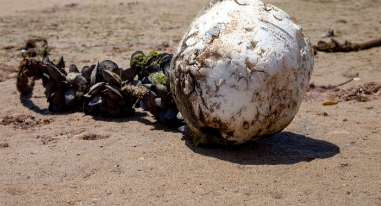
The national strategy will be a guiding document that complements current efforts to combat this type of marine pollution throughout Mexico’s domestic waters.
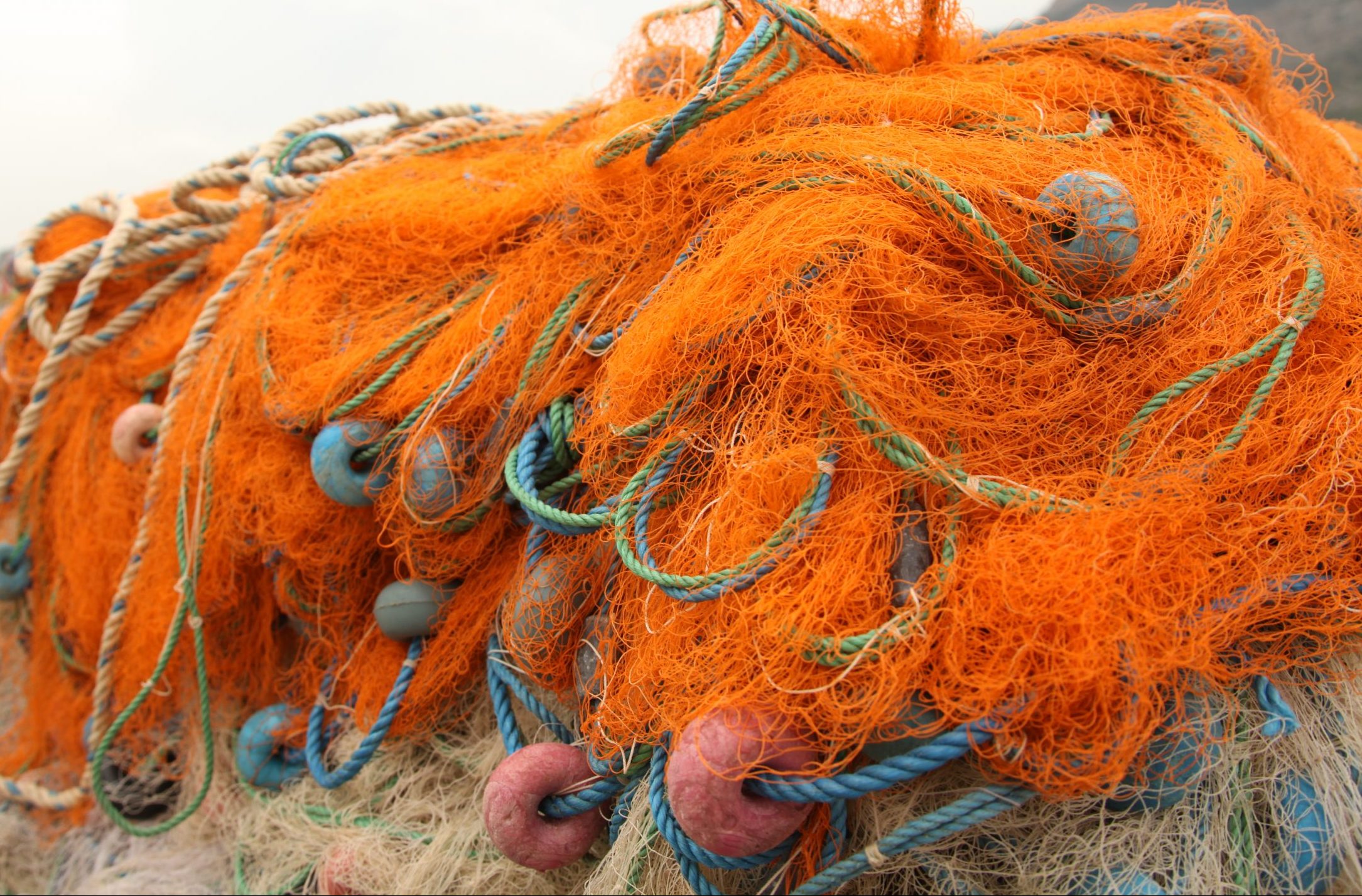
The actions taken to implement this initiative improve the cleaning of the seabed in the area and promote education and awareness among local communities about the impact of this form of pollution.
Challenges
Among the biggest challenges may include empowering local communities to help in these efforts.
Furthermore, there is a lack of coordination among stakeholders—the three levels of government, NGOs, private initiatives and fishing communities—and the extent to which artisanal fishers will take ownership of the sustainable development of projects within their own communities is unclear.
Recipe for Successful Implementation
Engaging a large variety of stakeholders and allowing for transparent conversations to take place across sectors are key.
When developing the pilot project, it was critical to engage all levels of society to ensure successful implementation.

